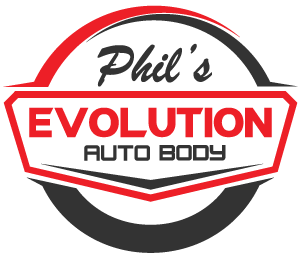Insurance Claims
Frequently Asked Questions
Phil’s Body Shop matches all insurance company estimates, and if there is any additional claim-related damage found, our experienced staff works directly with the insurance company without any added costs to you. Your insurance company CANNOT REQUIRE you to have your vehicle repaired at a specific repair shop. You may have your vehicle repaired at the shop of your choosing, however, the insurance company is only obligated to pay for repairs based on the lowest estimate which provides for the satisfactory repair of your vehicle. If you choose to have your vehicle repaired at a shop other than the low-bidder you may be responsible for paying the difference.
While your insurance company does have a right to inspect your vehicle, they are not required to do so. If your insurer chooses to perform an inspection, they CANNOT REQUIRE you to drive your vehicle to one of their “drive-in” claims center or other similar facility solely under control of the insurance company. The inspection may be performed, however, by one of the company’s “preferred” repair shops. Your insurer CAN REQUIRE you to travel a reasonable distance to complete their inspection. If your vehicle can be safely driven, they must complete the inspection within 15 days after you notify them of your claim. If your vehicle CANNOT be safely driven, your insurer must inspect the vehicle within 5 business days after you notify them of the claim.
Your insurance company MAY require more than one estimate before settling your claim. Along with their ability to inspect your damaged vehicle, multiple estimates help insurers determine the extent of your loss and prevent fraudulent claims. However, if the insurer requests more than two, they must pay for each additional estimate. Also, your insurance company cannot require “unreasonable travel” for you to obtain an estimate or for the company to inspect your vehicle.
The repair shop cannot change the cost of repairs to help you pay your deductible. Misrepresentation of these facts would constitute fraud.
If parts are being replaced on your damaged vehicle, your insurance company is required to pay for original equipment (OE) parts, unless you agree to aftermarket parts (parts not made by your vehicle’s manufacturer). However, your insurance company is only responsible for restoring your vehicle to the way it was before it was damaged. If your vehicle was not new at the time of the loss, the insurer does not have to pay for new OE parts. They must pay for parts of “like kind and quality” (OE parts of comparable age and condition). If you request new OE parts on an older vehicle, you may have to pay the difference.
Can my insurance company reduce my settlement based on either?
BETTERMENT means that your vehicle is better than it was before it was damaged. Your insurance company may only reduce your settlement if your vehicle’s resale value has increased over what it was before the accident. Generally, an insurer will deduct the difference between the cost of a used part (appropriate for the age and condition of the vehicle) and the cost of the new part. Betterment is only considered for major parts such as transmissions, blocks, etc. Items such as fenders and tires do not generally increase the overall resale value of the vehicle enough to merit a betterment reduction.
DEPRECIATION refers to a reduction in your settlement based on the age or use of a part that is to be replaced. Certain parts on your vehicle have a “life expectancy” and your insurance company may take this into consideration. For example, if a tire on your vehicle is expected to last 60,000 miles, but it was used for 30,000 miles at the time of the accident, your insurance company may elect to pay only 50% for a new tire.
